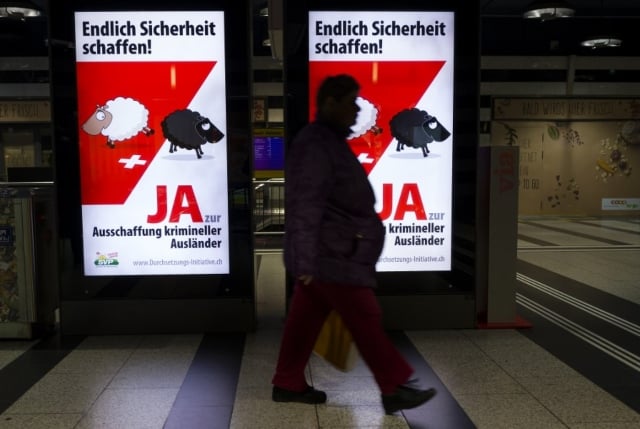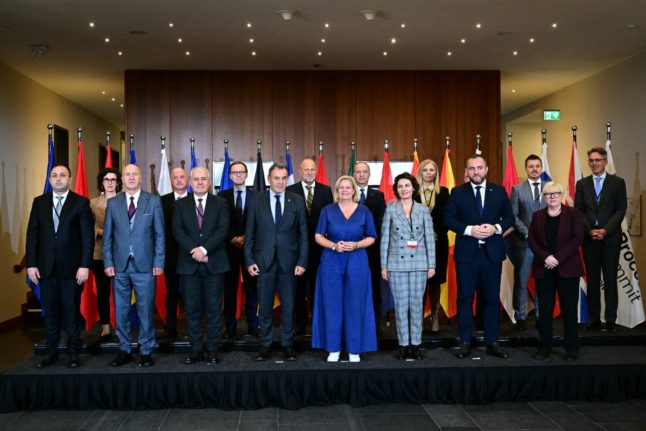That is a slight rise on the 69 percent registered in 2017.
In total, 1,702 foreign adults were handed deportation orders, according to the figures on criminal convictions published by the Federal Statistics Office.
The largest number of orders (649) related to serious drug offences, while 425 orders were issued for convictions for serious cases of theft and 97 orders were for robbery offences.
Most of the convicted criminals were men, and most did not hold a Swiss B (resident foreign national) or C (settled foreign national) permit, the FSO said in a statement (here in German).
Read also: Crime in Switzerland – what the latest figures reveal
Just 25 percent of B and C permit holders were handed deportation orders while this rate was 91 percent for other foreign nationals.
Criminal convictions for theft and fraud, including social security fraud, were not included in the statistics, with the statistics agency saying criminal records did not provide enough detail in those cases.
A highly political issue
The issue of deportation of foreign criminals is highly political in Switzerland.
The law allowing for such deportations came into force in 2017 after Swiss voters backed a popular initiative on the subject proposed by the right-wing, anti-immigration Swiss People's Party (SVP).
Under the law, foreigners can be expelled for 5–15 years for committing serious crimes including intentional homicide, serious assault and sexual acts with children among others. Repeat offenders can be expelled for 20 years or even for life.
Hardship clause gives judges elbow room
But the law also contains elbow room for judges in the form of a “hardship clause”. This sees courts able to refrain from deporting someone if expulsion would involve serious personal hardship to the person involved – a provision which recognises the special position of the many people born and raised in Switzerland who do not hold a Swiss passport.
Last year, the new system came under intense fire from the SVP after the statistics office published data showing just 54 percent of eligible criminals had actually been handed a deportation order.
The SVP described the figures as an “absolute scandal” and said the hardship clause was being used as a way to get around the new law.
The FSO was then forced to revise its figures which had originally included types of fraud that are not actually subject to mandatory expulsion orders. The final figure was thus revised up to 69 percent.
In its statement of Monday, however, the statistics agency noted that courts did not give reasons as to why criminals had not been handed a mandatory detention order.
This meant that no statements could be made as to how the “hardship clause” was being used, the agency said, noting that there were a variety of reasons deportation orders were not issued, including cases where criminals had acted in self defence, or where they came from a country which is part of the EU free movement of people area.
In 2016, the SVP launched a campaign which would have seen foreign criminals convicted of even minor crimes expelled. But voters rejected this at the ballot box.



 Please whitelist us to continue reading.
Please whitelist us to continue reading.
Member comments